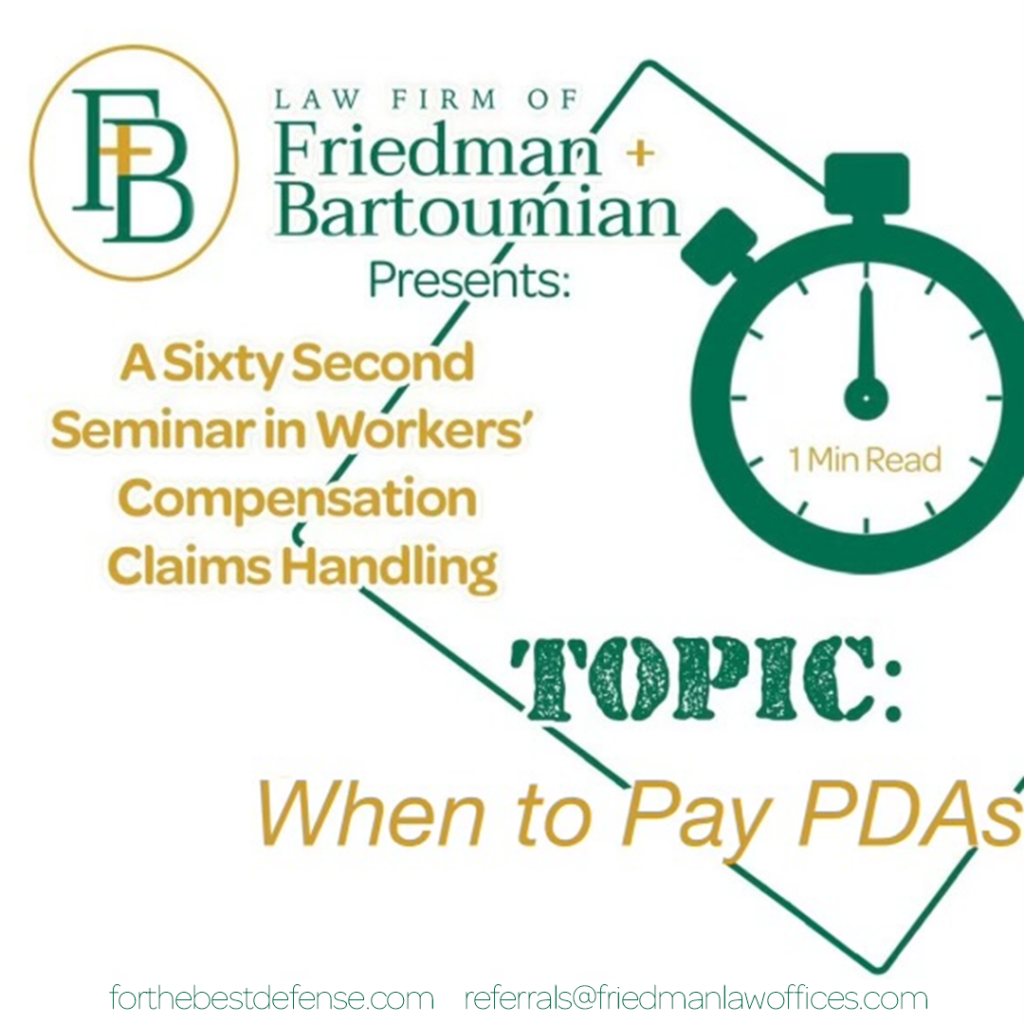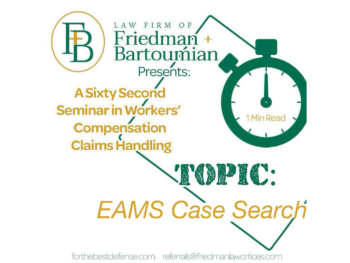
Today’s blog focuses on when permanent disability advances (PDAs) are to be paid. The rules pertaining to PDAs have been somewhat murky ever since the governing law was amended eleven years ago. Prior to 2013, the only statute which addressed the payment of PDAs was Labor Code § 4650(b), which directed that PDAs begin within 14 days of the last payment of temporary disability, providing that a permanent disability award was anticipated. In situations when there was no TD entitlement, then the first payment of PDAs was to be made within 14 days of when a reasonable estimation of PD could be determined, even if the injury had not yet reached Maximum Medical Improvement. Lastly, whenever an injury became MMI, entitlement to PDAs was to be reevaluated within 14 days.
Where a worker had legal representation, up to 85% of PD was to be advanced. If unrepresented, then up to 100% of estimated PD was to be paid.
Over the years, mandatory payment of PDAs led to a variety of complaints as overpayments would often occur, many of which were not the adjuster’s fault. Overpayments were often associated with inaccurate ratings, suppression of apportionment, and better than anticipated medical recoveries. Payment of PDAs also caused a great deal of confusion among employers and injured workers as neither understood why work comp indemnity benefits continued to be issued after the claimant returned to work. For these reasons, SB 863 (2012 legislation) was enacted, effective 1/1/2013. Such legislation created LC § 4650(b)(2) which changed the legal landscape governing payment of PDA’s.
For injuries that became MMI after 1/1/13, no longer would payment of PDAs be required if either of the following two scenarios occurred:
a. The employer offered the employee a position that pays at least 85% of the wages earned at the time of injury (note: only the offer, not acceptance, triggers this provision).
b. The employee is employed in a position with any employer paying at least 100% of the wages earned at the time of injury.
A frequently asked question concerns what action an adjuster should take when an employee returns to work for a new employer where current wages are unknown. Should the administrator pay or withhold PDAs since the administrator is unaware if at least 100% of the AWW is being earned? The answer is quite simple. Ask the employee. Send out a PD delay notice requesting proof of current wages to determine if the claimant is eligible for PDAs. If no response is received, send out one additional notice. Eventually, a denial notice can be issued for failure to respond, subject to reconsideration should appropriate information be later submitted.
As your partner in defense of claims, the attorneys here at Friedman + Bartoumian are available to answer questions about PDAs. We are at your service.


 The EDD Experiment: A 60-Second Seminar in Workers’ Compensation Claims Handling
The EDD Experiment: A 60-Second Seminar in Workers’ Compensation Claims Handling
Leave a Reply